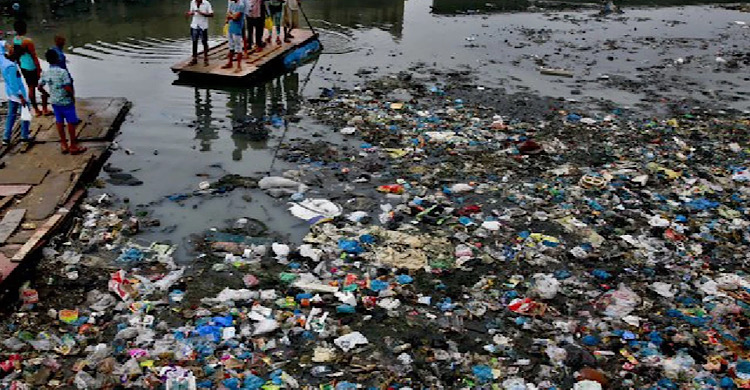Lack of coordination dooms govt drive against polythene, single-use plastics


The government’s much-hyped move to curb the use of polythene bags and single-use plastics has floundered, with experts blaming the failure on the lack of a coordinated and comprehensive approach.
They said such efforts will never succeed unless the government simultaneously regulates the import, marketing, storage and processing of plastic particles and ensures the availability of proper alternatives in sufficient quantities.
Though the interim government began enforcing a no-more-polythene-bag policy in super shops from October 1, 2024, and extended it to all kitchen markets from November 1, 2024, the move made no impact beyond super shops.
Environment pollution and public health expert Prof Dr Liaquat Ali stressed the importance of forming a multi-sectoral or inter-ministerial body comprising the ministries of environment, health, commerce, education, information, textiles and jute and home to combat the use of single-use plastics effectively.
“I think the initiative to stop the use of polythene bag and single-use plastics has failed due to lack of a coordinated initiative,” he told UNB.
Dr Liaquat Ali observed that the use of polythene bags or single-use plastics is on a gradual rise. “No scattered initiative will be a success here. I think this has been a failed initiative. Interventions must be simultaneous across all relevant sectors, from import, production and consumption,” he added.
Echoing the same, environmental activist architect Iqbal Habib said the campaign against polythene bags and single-use plastic products cannot succeed without coordinated restrictions on import, marketing, storage and production and intervention in recycling alongside making affordable proper substitutes available in the market and strict enforcement of laws.
“The government did not impose a blanket restriction on import and processing of plastic particles, citing their use in RMG and other export-oriented sectors. But removing polythene is impossible without imposing simultaneous restrictions at all levels,” he said.
About alternatives, he said the copyright of the biodegradable ‘Sonali Bag’ (Jute Polymer) is still restricted. Besides, some entrepreneurs showed interest in producing substitutes from corn, potato and banana fibre, BSTI has not approved them yet, he added.
Noting that polythene is being used in all sorts of packages, Iqbal Habib said this government has no dare to control 40-50 business oligarchs in using polythene.
Bangladesh Poribesh Andolon (BAPA) General Secretary Alamgir Kabir blamed the failure of the anti-polythene initiative on the lack of affordable and accessible alternatives in the market. “This initiative didn’t see light beyond super shops due to lack of suitable substitutes. It has failed,” he said.
Referring to a research report, he said some 2.5 crore polythene bags are dumped daily in Dhaka alone, resulting in serious environmental, health and economic consequences.
He suggested that the government subsidise eco-friendly alternatives and consider purchasing the copyright of the Sonali Bag for mass production.
In September 2024, Environment, Forest and Climate Change Adviser Syeda Rizwana Hasan announced that super shops must stop using polythene and polypropylene shopping bags from October 1, 2024 as well as a nationwide anti-polythene drive in all kitchen markets from November 1, 2024 as part of a phased enforcement of the polythene ban.
The Adviser also said the government would strictly enforce the ban on production, storage, transportation, marketing and use of polythene to completely stop its use in the country.
But like previous attempts, this fight against polythene appears to be heading towards failure.
The polythene bags were first banned in 2002 and the people refrained from using them for some days, fearing punishment. But they started using polythene again due to the lack of suitable alternative bags.
Bangladesh is now facing an alarming surge in plastic waste, fueled by the failure to recycle disposable items like bags, bottles, straws, and packaging materials, many of which end up in landfills and water bodies.
Unregulated Plastic Production
Plastic industries also contribute considerably to the growing mismanaged plastic waste in Bangladesh. There are about 5,000 plastic manufacturers operating in Bangladesh, employing about 1.2 million individuals (BIDA, 2021).
According to another research, Bangladesh's annual per capita plastic consumption in urban areas tripled to 9.0 kg in 2020 from 3.0 kg in 2005.
Of the 977,000 tonnes of plastic consumed in 2020, only 31 percent was recycled.
